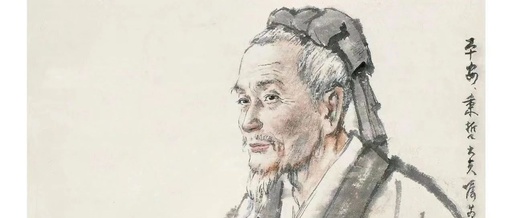【6.4 】
In men, a pale complexion indicates thirst and loss of blood, sudden shortness of breath and palpitations, with a floating pulse, indicating interior deficiency.
——————————————————————————————————————————
【Notes】
Interior deficiency is also a type of labor syndrome.
1. Pale complexion in men: This means that the person’s face appears very pale and cold. For example, in hot weather, we should have a flushed and radiant face, but this person looks pale and thin. This is different from the ‘Lang Jun Mian’ (young man’s face) described in physiognomy. What is ‘Lang Jun Mian’? It refers to a face that looks shiny and smooth, without wrinkles. People might wonder, ‘Did he apply oil? Why does his face look oily?’ This is ‘Lang Jun Mian’, which indicates a poor physiognomy, lacking groundedness. Here, ‘pale complexion’ is unrelated to ‘Lang Jun Mian’; it represents a deficiency of Qi and blood.2. Thirst: This means the patient feels very thirsty. Whether this thirst is caused by diabetes or any other condition, as long as the patient experiences thirst, it indicates a deficiency of body fluids. Why does a deficient person feel thirsty? Because when the interior Yin is deficient, Yang becomes more exuberant. Some patients are both deficient and hot, but this heat actually arises from Yin deficiency, not from excess heat. If it were excess heat, we would use Bai Hu Tang (White Tiger Decoction) or Cheng Qi Tang (Purge the Qi Decoction) to attack it. The thirst caused by deficient heat is different; if there is nothing to attack, how can we proceed? At this time, the deficient heat can still produce a high temperature, which will evaporate body fluids, leading to thirst.In such cases, we need to prescribe herbs to tonify deficiency and also herbs to clear heat. If we only prescribe herbs to clear excess heat, the result of using Da Cheng Qi Tang (Major Order the Qi Decoction) will remove the heat, but the deficiency will worsen. Therefore, deficiency syndromes must not be treated with attacking methods. If the patient has excess heat, which is strong and robust, and we prescribe herbs to tonify deficiency, the excess will become even more pronounced. In Traditional Chinese Medicine, we must understand Yin and Yang, exterior and interior, deficiency and excess, cold and heat; this is the essence of diagnosis.3. Sudden shortness of breath and palpitations: ‘Sudden’ means it occurs abruptly. When the patient suddenly experiences shortness of breath, it indicates insufficient Qi.Why does this happen? When the body is deficient, the gastrointestinal function must be poor, and the Spleen (Pi) cannot generate Metal (Jin). The fluids in the lungs are supplied by the Pancreas (Yi) and Spleen. When the Spleen absorbs nutrients, it delivers them to the lungs. When the Spleen’s function is compromised, the patient will experience sudden shortness of breath, indicating insufficient Qi.Palpitations, in TCM, are also referred to as ‘blood deficiency’.Experiencing palpitations indicates that the heart lacks strength, leading to palpitations, which in TCM is termed blood deficiency.Thus, one is Qi deficiency, and the other is blood deficiency.4. Floating pulse: The pulse’s exterior represents Qi; when you feel it, you sense the Qi pulse, not the blood pulse. Yang represents Qi, and blood represents Yin. When blood is insufficient, Yang rises, resulting in a large and floating pulse, indicating that the patient has blood deficiency.
Note: For educational reference only. Traditional Chinese Medicine is profound and emphasizes the differentiation of syndromes through the six channels, observation, inquiry, and pulse diagnosis. It is not a skill that can be mastered in a day; do not self-medicate recklessly!

